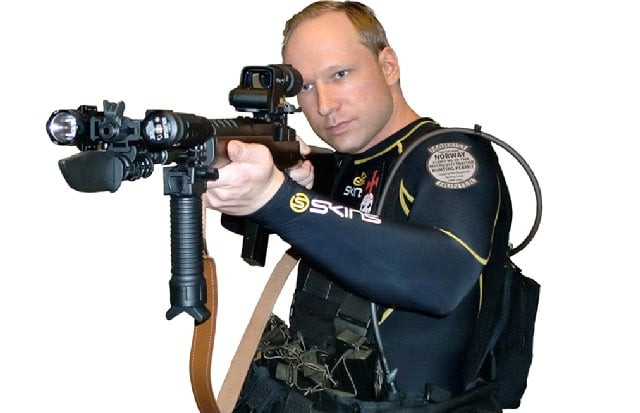Police apologise for not stopping Norway massacre sooner
According to the police timeline, the massacre lasted for 75 minutes before Behring Breivik was arrested.

"On behalf of the Norwegian police I want to apologise that we did not arrest Anders Behring Breivik sooner," Norwegian national police commissioner Oeystein Maeland said in a statement that presented an evaluation report on the police response to the July 22 twin attacks.
"It is hard, knowing that so many lives could have been spared if the perpetrator had been arrested sooner," he added at a press conference.
The day of the massacre Behring Breivik, who has claimed to be on a crusade against multi-culturalism and the "Muslim invasion" of Europe, set off a car bomb outside government buildings in Oslo, killing eight people.
He then went to Utoeya island northwest of Oslo, and, dressed as a police officer, spent more than an hour methodically shooting and killing another 69 people, mainly teenagers, attending a summer camp hosted by the ruling Labour Party's youth wing.
Police came in for criticism after the attacks, in particular over the relatively distant launch point for an intervention force deployed to the island, as well as the choice of a simple rubber dinghy, which was overloaded and broke down.
According to the police timeline, the massacre lasted for 75 minutes before Behring Breivik was arrested.
"Could we have arrived on Utoeya sooner?" Maeland asked.
"The answer is yes. If the police boat had not been overloaded and broken down," he acknowledged.
"We can establish in all certainty that the police did not have the capacity to handle all the aspects of such an event on a regular Friday in July," he said.
However, the report stressed that "police carried out their duties as promptly as possible under the circumstances."
Among some 54 areas where the police had problems, the report highlighted poor communications, lack of competence, limited staffing and organisation, as well as poor management of victims, emergency hotlines and planning.
Now in custody at the high-security Ila prison near Oslo, Behring Breivik, 33, is scheduled to go on trial on April 16. He has been charged with "acts of terror" and could face life in prison or in a closed psychiatric ward.
A psychiatric evaluation of the confessed killer concluded late last year said that he suffered from "paranoid schizophrenia". A second opinion is currently under way.



















COMMENTS
Comments are moderated and generally will be posted if they are on-topic and not abusive.
For more information, please see our Comments FAQ